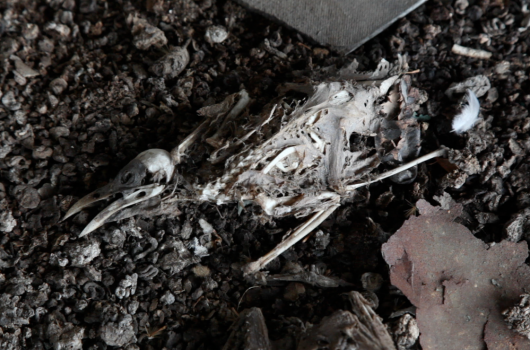
Just saw the new short HYPOCHONDRIA OF THE HEART by director/producer Janna Kyllästinen as part of the Bushwick Open Studios Festival. The film explores diverse understandings of nostalgia – from a 17th century medical illness through what is known as a “hypochondria of the heart” treated by poets and artists. The main protagonist is Harvard professor, artist and immigrant Svetlana Boym who builds meaning from fragments of memory, taking the audience on a journey through the art and science of nostalgia.
Beautifully shot and craft-fully edited weaving together various new and archival materials, the documentary almost feels like a meditation on the topic of nostalgia. And since this is a topic I deeply care about too, I decided to ask Janna a few questions:
MS: How did you choose to document something that’s so difficult to capture on film?
JK: I’m fascinated by ideas, concepts and words. Getting the emotions that those ideas create come through visually on film is definitely a challenge. In this film I experimented with a triptych of history, science and personal experience. Illustrating words and theories is difficult, but also very rewarding.
MS: What do you believe remains in our memories when we think of the past?
JK: Memories are tricky and fascinating constructs. Like professor LeDoux explains in the film, a memory is stored in multiple pieces in the system of our brain, and every time reconstructed from those pieces when used, and dismantled, stored away or “reconsolidated” afterwards. So in a way a memory doesn’t even exist if it’s not used, at least not as a “whole”.
MS: Is the kind of painful nostalgia Svetlana talks about only applicable to refugees?
JK: I think Svetlana’s longing for home, and the taboo of nostalgia, is definitely something that is typical to refugees, but even on my own part, having left my home country voluntarily, I do identify with the painful emotions she expresses in her art and writing. Someone once said that “when you’ve left one country, you’ve left all countries, forever”. I interpret that as an immigrant really has two homes, and at the same time no home at all.
MS: With people changing occupations and locations more and more often, isn’t nostalgia something of the past?
JK: Quite the contrary, I think nostalgia might be one of the most determining ideas of our whole society these days. Think of all the popular culture that is built on nostalgia, polishing bits of the past, recycling them, and selling them on for more profit. But I guess you might also be right in that the “nostalgic human” could become extinct, as we need to adapt to rootlessness, mobility, and inevitable progress.
For a sneak preview of the film, check out the trailer below. For information on future screenings, follow Awen Films.




